The next most exciting endeavor for humanity after Hubble & Gaia Telescopes... is the:
James Webb Space Telescope!
On the left is the hubble mirror, on the right is the new configuration for JWST
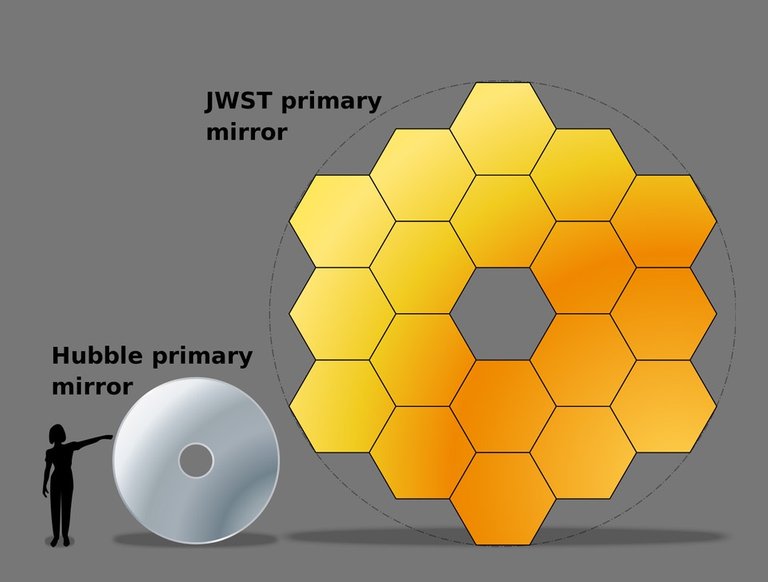
18 Hexagonal Mirrors
The James Webb Space Telescope (JWST) is planned to be the Hubble Space Telescope successor. The JWST's primary mirror is composed of 18 hexagonal mirror segments for a combined mirror size of 6.5-meter-diameter (21 ft 4 in).
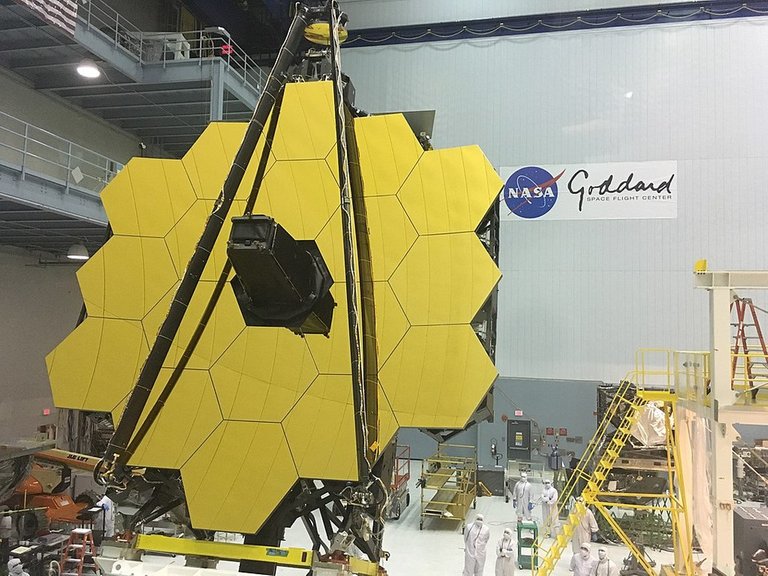
A large sunshield will keep JWST's mirror and four science instruments below 50 Kelvin (−220 °C; −370 °F). You can see the sunshield in gray at the bottom of this to-scale model.
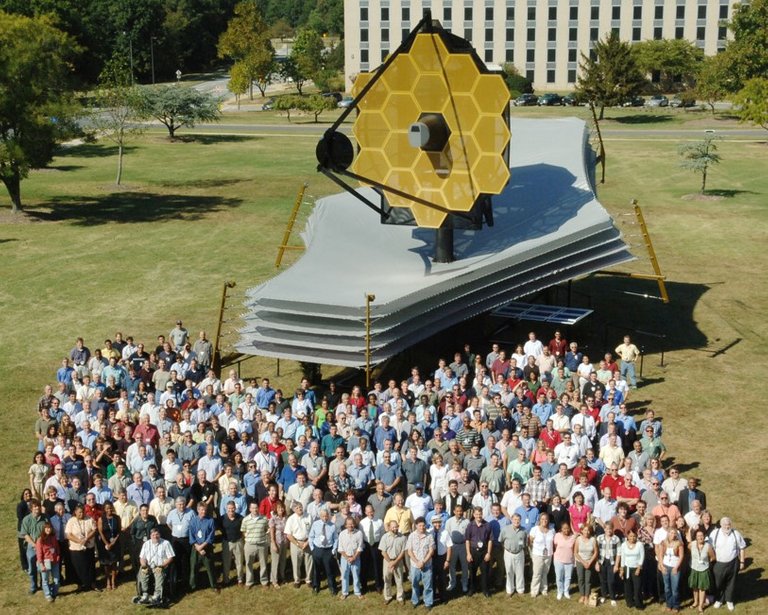
Scheduled to launch in 2019 it will circle near the Earth–Sun L2 lagrangian point offering unprecedented resolution and sensitivity. A Lagrange point is a unique location in space where gravitational forces of two bodies equal that of a smaller third body. This allows for a unique point of equilibrium to "park" crafts to make better observations.
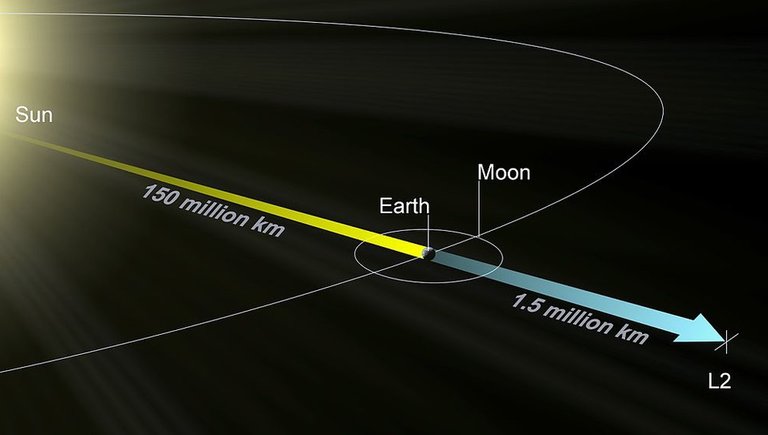
Meanwhile, we can check "Gaia" Telescope Data being visualized in 3D with this amazing open-source software.
"Gaia Sky is a real-time, 3D, astronomy visualisation software that runs on Windows, Linux and macOS. It is developed in the framework of ESA's Gaia mission to chart about 1 billion stars of our Galaxy in the Gaia group of the Astronomisches Rechen-Institut (ZAH, Universität Heidelberg)."
https://zah.uni-heidelberg.de/gaia/outreach/gaiasky/
...Now, more about JWST mirrors
Mirrors
"[Ball Aerospace] designed and built the advanced optical technology and lightweight mirror system that will enable Webb to look 13.5 billion years back in time." - http://www.ball.com/aerospace/programs/jwst
These mirrors are incredible stuff: They're coated in a layer of ultra-thin (100 nanometers) gold by Quantum Coating Incorporated. (flight spare) Photo by Drew Noel.
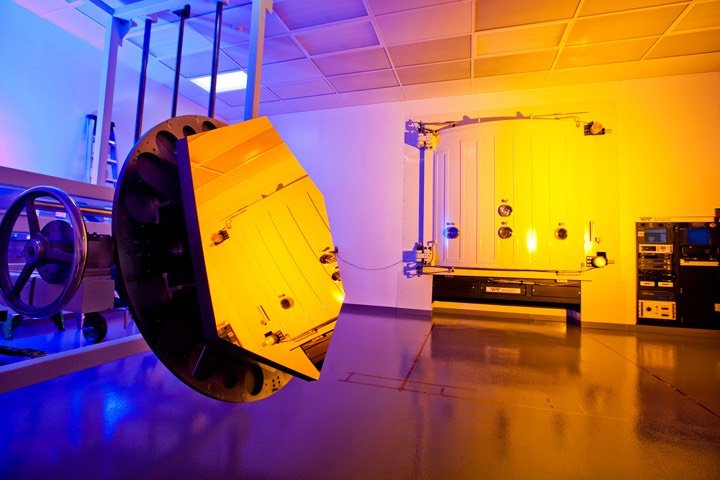
Before gold is applied the Beryllium mirrors are polished & undergo Cryogenic Testing ensuring they're smooth & reflective as possible.
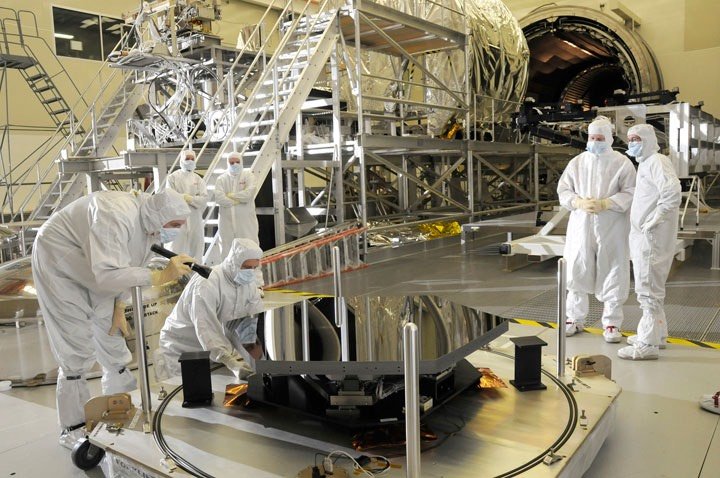
Scheduled to launch in 2019
JWST will be launched on the reliable Ariane 5 rocket, it has a record of 80 successful consecutive launches as of as of June 28, 2017.
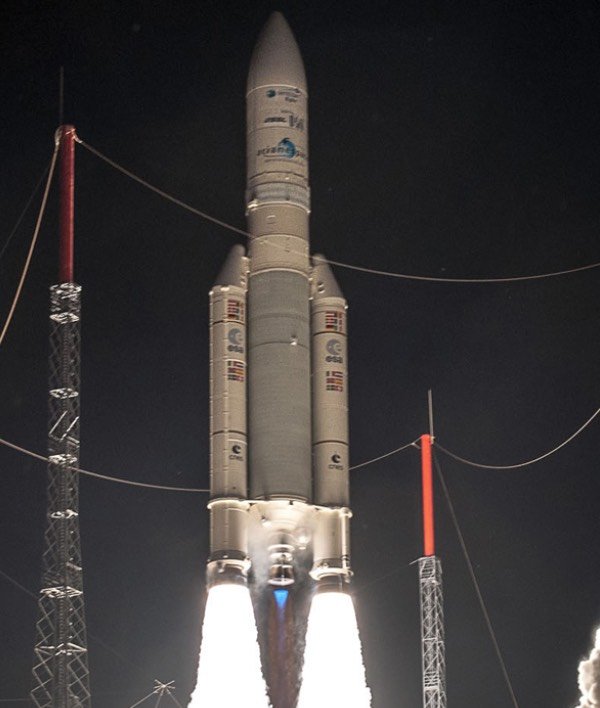
You can read more about JWST over here: https://www.space.com/21925-james-webb-space-telescope-jwst.html - See you next time! —Mark
Hi, I found some acronyms/abbreviations in this post. This is how they expand:
That's neat!